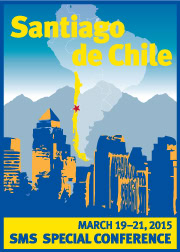From Local Voids to Local Goods: Can Institutions Promote Competitive Advantage?
A recent stream of strategy research has examined how institutional voids pose fundamental challenges for industrial development in emerging markets, which bring detrimental effects to the competitiveness of local firms. Yet, in many countries, policymakers, to various degrees and levels, have adopted a rather positive agenda, to try and foster local firms through the provision of public resources, such as investments in infrastructure, specialized industrial policies, as well as knowledge-generation systems. Concomitantly, firms themselves have pursued collective synergies that individual firms alone would be able to attain. In sum, strategies embedded in the local environment may promote rather than limit competitive advantage. To advance this discussion, we are gathering a group of established scholars and practitioners in Santiago, one of the most modern Latin American cities. Chile is also well known for its distinctive institutional reforms, which promote a thriving business climate. The Conference will thus offer a unique opportunity to discuss how firms and institutions interact to spur entrepreneurship and development.
CALL FOR
PROPOSALS
A new wave of strategy research has incorporated institutional issues in the analysis of strategic management and firm-level performance. The focus of such research stream has invariably taken the form of one or another variant around the central theme, regarding how institutional voids, a term coined by Tarun Khanna and Krishna Palepu, create failures in material input, labor, as well as capital markets. These voids induce firm-level impediments to growth and entrepreneurship, and pose formidable challenges for firm competitiveness, and even industrial development in emerging markets.
Yet, in many countries, governments to various degrees and levels, for better and for worse, have adopted practices that actively try to foster local firms not just with the customary direct subsidies and protection, but also through the provision of public resources, such as investments in infrastructure, the design of specialized industrial policies, as well as educational systems. Concomitantly, firms themselves have been known to pursue collective synergies that individual firms alone would not be able to attain. Such synergies have taken the form of shared investments in communal resources, which bring inimitable scale advantages and capabilities that firms otherwise confined to local markets would hardly have access to. These collective investments however demand the creation of local and mostly indigenous institutional solutions that emerge from the bottom up.
In many cases, therefore, local environments may “promote” rather than “limit” firm growth. Moreover, it is evident that local firms, in their collective, have organizing media that can help them overcome the traditional forms of institutional voids as seen from the developed world perspective. Ultimately, our quest is to gather scholars and practitioners to debate what unique joint features and opportunities lie behind the competitiveness of firms in emerging markets, as they compete in an increasingly globalized world market.
The Conference will include several distinguished academics and practitioners advancing this discussion. In addition, Conference Co-Chairs and Track Chairs will welcome submissions around four sub-themes in conference tracks:
CONFERENCE SPONSORS

